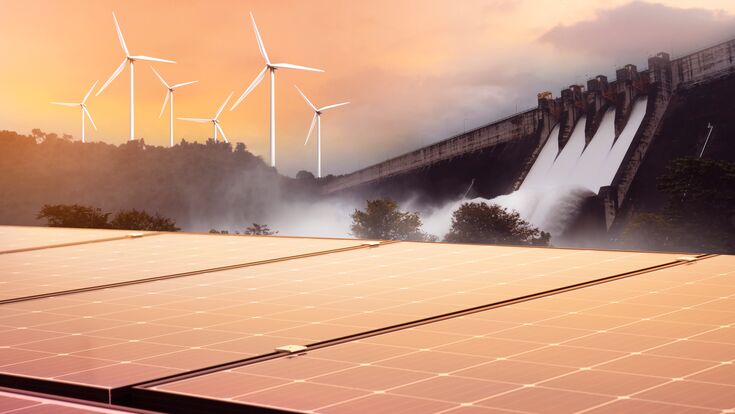EU directive : EU accelerates renewables permitting - NGOs sceptical

The European Green Deal is the EU's long-term growth strategy to make Europe climate-neutral by 2050 and put renewable energy at the heart of the energy system. On 18 May 2022, the Commission adopted, as part of the REPowerEU plan, a proposal to amend the Renewable Energy Directive (REDII) on the promotion of the use of energy from renewable sources, the Energy Efficiency Directive, and the Energy Performance of Buildings Directive in order to accelerate the clean energy transition and increase energy efficiency.
However, since the publication of the REPowerEU plan, the energy crisis has worsened. For this reason, the European Commission has proposed a new temporary emergency regulation to accelerate the deployment of renewable energy sources. Together with diversifying supplies and saving energy, deploying more renewable energy is part of the EU's plan to end our dependence on Russian fossil fuels.
„Renewable energy is a triple win for Europeans: it is cheaper to produce, cleaner for our planet, and independent of Russian manipulation. This proposal is another step to fast-track the green transition and respond to the energy crisis started by Russia’s war in Ukraine. We uphold the necessary environmental protections by focusing on areas where there is strong evidence that there would be no concerns, such as solar panels on existing or already planned structures, or the renewal and upgrading of current plants that are near the end of their economic life”, said Frans Timmermans, Executive Vice-President for the European Green Deal.
Fast-tracking permitting procedures
The European Council called for a fast-tracking of permitting procedures to accelerate the rollout of renewables. Under the proposal, renewable energy plants would be presumed to be of overriding public interest. This would allow new permitting procedures to benefit with immediate effect from a simplified assessment for specific derogations foreseen in EU environmental legislation. Moreover, the proposal clarifies the scope of application of certain rules foreseen in the EU Birds and Habitats directives in order to eliminate bottlenecks in the permit-granting process for certain renewable energy projects.
- Solar Energy: In light of the current electricity price volatility, granting significantly faster permit procedures will accelerate the pace of the installation of solar equipment on artificial structures, such as buildings.
- Renewable power plants: Repowering existing clean energy plants has significant potential to rapidly increase power generation from all renewable sources. It reduces gas consumption as well as the need to designate new sites. The current proposal streamlines the permit-granting process applicable to the repowering of renewable energy projects by including all the relevant environmental assessments in the new maximum deadline of six months.
- Heat pumps: In order to accelerate the rollout of this technology, the proposal accelerates permit-granting procedures by introducing a three-month maximum deadline and a simplified procedure for grid connection of smaller heat pumps.
NGOs criticizing emergency regulation
But NGOs such as the European Environmental Bureau (EEB) criticize the emergency regulation. Even though scaling up the development of renewables is urgent and imperative it should not be done at the expense of environmental safeguards and democratic checks. This would only create a significant legal uncertainty and trigger litigation at the local level.
The proposal would curtail environmental assessments that provide fundamental nature and social safeguards and proposes measures that de facto amend cornerstone EU environmental regulation, the EEB said in a press release. “Overall, from a legal perspective, the proposed measures seem neither appropriate, nor proportionate, nor do they seem to reflect ‘a spirit of solidarity’ that is the basis of the Art.122 TFEU powers - the proposed Regulation thus likely exceeds the Treaty provision it is based on. A lack of competence, breach of the Treaties or a breach of the principle of legal certainty could provide grounds for the Parliament to bring an action of annulment against this emergency Regulation,” Laura Hildt, Policy Officer for Biodiversity at the EEB, said.
It is also unclear in the proposal how the continuous obligations of the Directives will apply to projects once the one-year bridge is lifted again. The EEB warns that in the midst of a mass extinction that is fundamentally intertwined with the climate crisis, we need to pave the way to win-win renewable energy deployment solutions that reduce greenhouse gasses emissions while protecting and enhancing the EU’s ecosystems. Renewables roll-out can be accelerated by ensuring better implementation of environmental assessments and tackling administrative bottlenecks - i.e. by fostering digitalisation of procedures and establishing one-stop-shops for project applicants - and improving resources in all levels of competent authorities for both permitting and environmental assessments.

